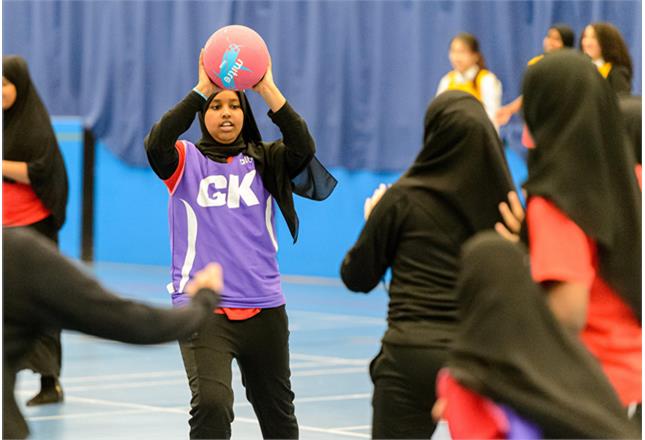
New numbers from Sport England show that over half of our children and young people are not meeting the minimum recommended levels of daily activity, set by the Chief Medical Officer to maintain health.
This year’s Active Lives Children and Young People Survey results show widening inequalities based on gender, geography, ethnicity and affluence.
Girls and children from less affluent families are still less likely to be active than boys and those from more wealthy families, and the gap between activity levels among Black and Asian children and White children has widened over the past five years.
Early intervention of physical activity which builds positive habits and experiences has the power to change lives, increase population health, and set children and young people up with the best opportunity to thrive – yet over half our children, and crucially in majority those who need it the most, are not being given enough of a chance.
Further, while numbers show that active children are happier and less lonely on average, last year we lost over 4000 hours of Physical Education in our curriculum and we are facing a youth mental and wellbeing crisis.
There are some positive trends with a significant increase in children and young people participating in gym and fitness activities, as well as more girls playing football, which shows that direct investment, role models and working with the sector reaps rewards.
We know that our inactivity levels mean we are trailing behind comparable European neighbours. However, our sector is one of the most efficient national sectors where it comes to using investment effectively and therefore has great potential to empower more people to be physically active.
Get Active, the government’s new strategy for sport and physical activity, set ambitious targets for increasing activity levels, but current systems are not functioning well enough to enable a good start in life for all children.
We need to reimagine how we approach activity at all levels, and put activity at the heart of schools, our communities, and government priorities, otherwise we will fall short of those targets and will be putting the next generation at risk.
Current and future governments have an opportunity here to be more ambitious and work with our sector already to unlock the power of being active for young people and shift the dial on activity, health and wellbeing. Our sector stands ready to work with leaders and government to make this a reality.
Lisa Wainwright, CEO of the Sport and Recreation Alliance says: "The latest numbers in the Active Lives Children and Young People survey reaffirms that more needs to be done to get more people – of all backgrounds and ages – to be more active.
"More needs to be done to provide more choice and opportunities for people to participate in and benefit from sport, recreation and physical activity – in school, and communities across the country.
"And more needs to be done to support clubs and volunteers – the lifeblood of grassroots sport and recreation – and to protect our blue and green spaces to enable people to do so.
"That’s why we’re calling on Government to work hand in glove with the Alliance, and our sector partners, and transform how we think about participation in sport, recreation and physical activity, embed the principle of fostering a more active nation right across Whitehall, and genuinely move the dial on boosting physical activity levels.
"This is essential if we’re to address some of the most significant public health challenges facing the country, and improve life chances for thousands of children."
About the National Sector Partners Group
This release is issued on behalf of a coalition of lead representative bodies from across the sport, recreation and physical activity sectors:
Through our collaborative work as sector partners, we aim to engage decision makers to improve the operating landscape for the sector and embed sport, recreation and physical activity as a key contributor to wider public policy objectives.
As part of wider work through the National Sector Partners Group (NSPG), we recently published Unlocking the Potential which sets out how sport, recreation and physical activity can be integral to successfully delivering a number of key Government priorities including Levelling Up, driving economic growth, achieving Net Zero and supporting the NHS. The report also proposes a range of systemic interventions including access to investment, tax and regulatory changes and wider policy reform which the coalition believes are key to maximising this role.
At Budget 2025, the Government confirmed changes to the business rates system from 2026-27, including a new system of relief for Retail, Leisure and Hospitality (RHL) businesses.
Read moreThe Sport and Recreation Alliance was delighted to have launched the Reconomics 3.0 report in Parliament this week, outlining the immense economic, health and social value of outdoor recreation.
Read moreThe Sport and Recreation Alliance is delighted to confirm former Rugby Football League (RFL) CEO, Ralph Rimmer OBE, as the Chair and Jack Baker as Deputy Chair of the new NGB Coalition.
Read moreJoining the Sport and Recreation Alliance is pretty simple, but worthwhile!
Register now